


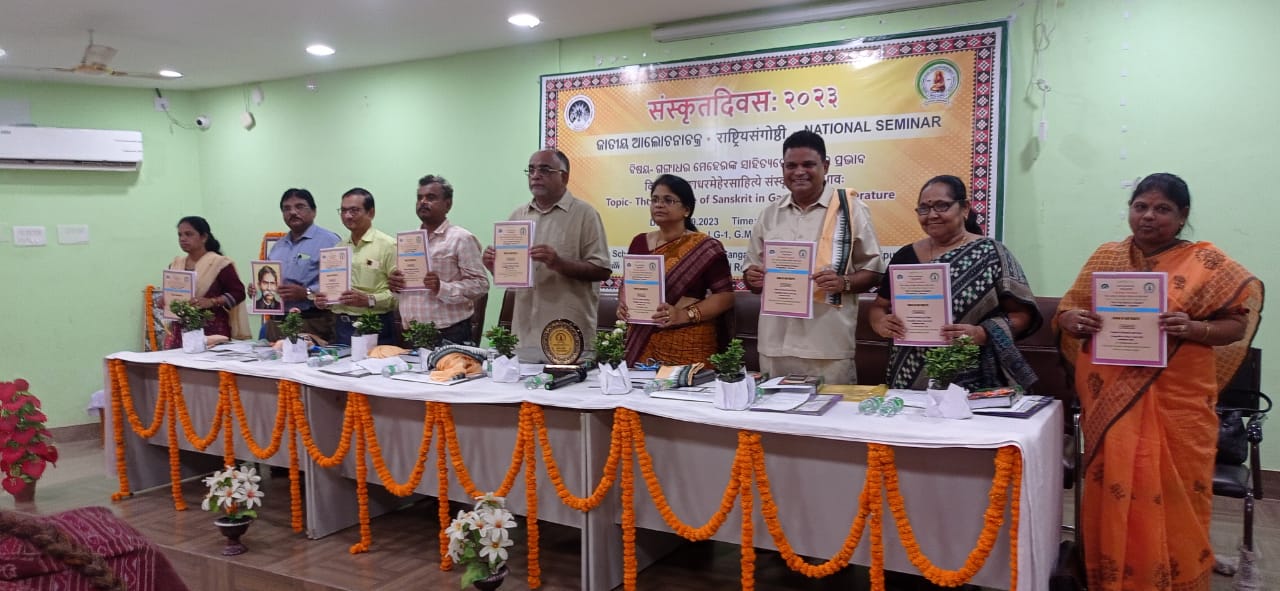 Date: 04/09/2023
Date: 04/09/2023 In this Seminar is proposed to highlight the philosophical thought and poetic items of Great Patriot Poet of Odia Literature Swabhavakavi Gangadhar Meher's Literature which will guide properly to be a good citizen.
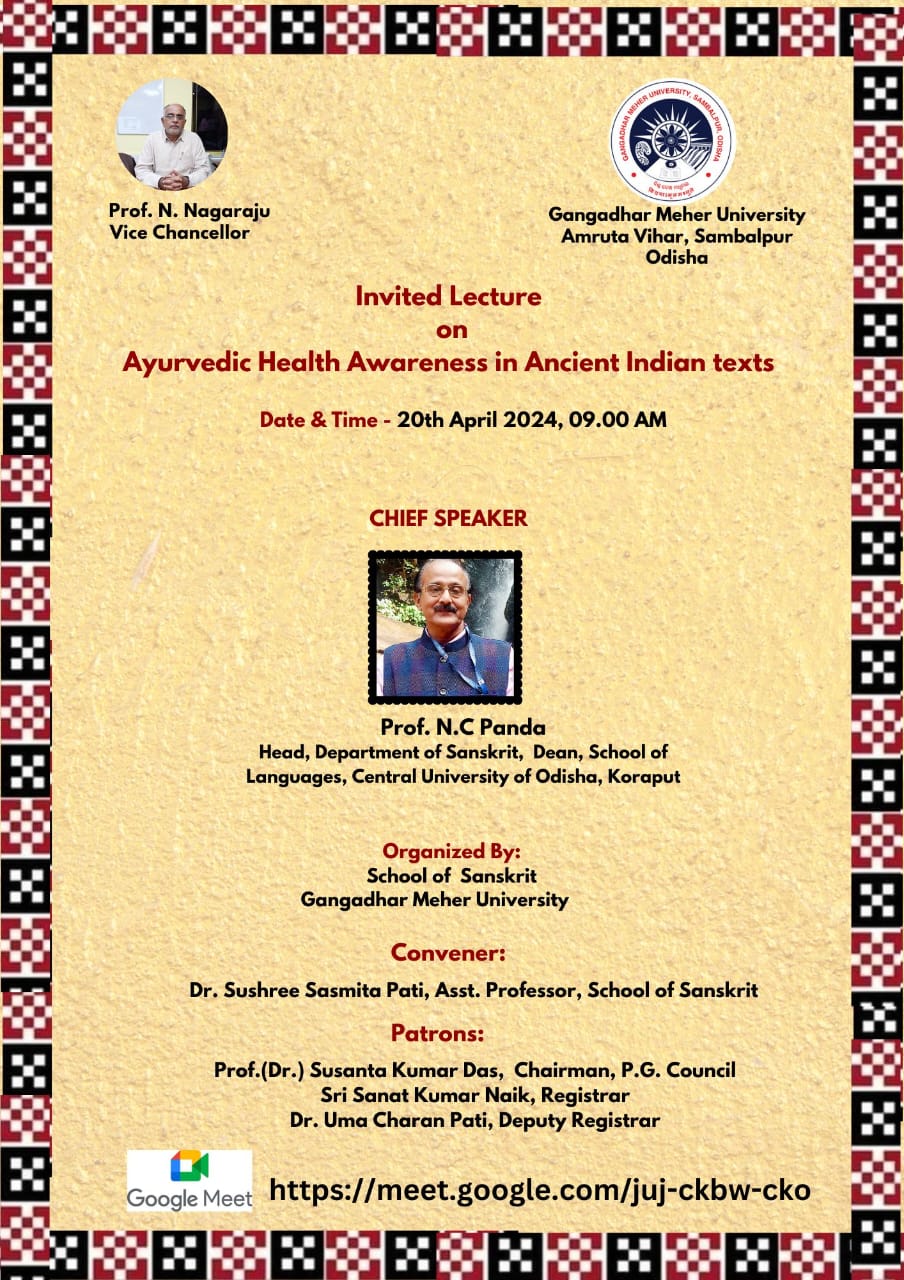 Date: 20/04/2024
Date: 20/04/2024 Prof. Narasingha Charan Panda, Head and Professor of Sanskrit, Central University of Odisha, Koraput in his talk emphasized that Ayurveda maintain and restore balance in body’s qualities and functions. He also suggested 10 good habits for being healthy recommended by Ayurveda i.e 1. Wake up in Brahma Muhurta. 2. Do exercise everyday. 3. Do abhyanga oil application everyday. 4. Do scrubbing using medicated powders everyday. 5. Do hot water gargling. 6. Stop overeating. 7. Eat with mindfulness. 8. Eat fresh ginger with rock salt before any meal. 9. Drink boiled water .10. Do fasting once a week.
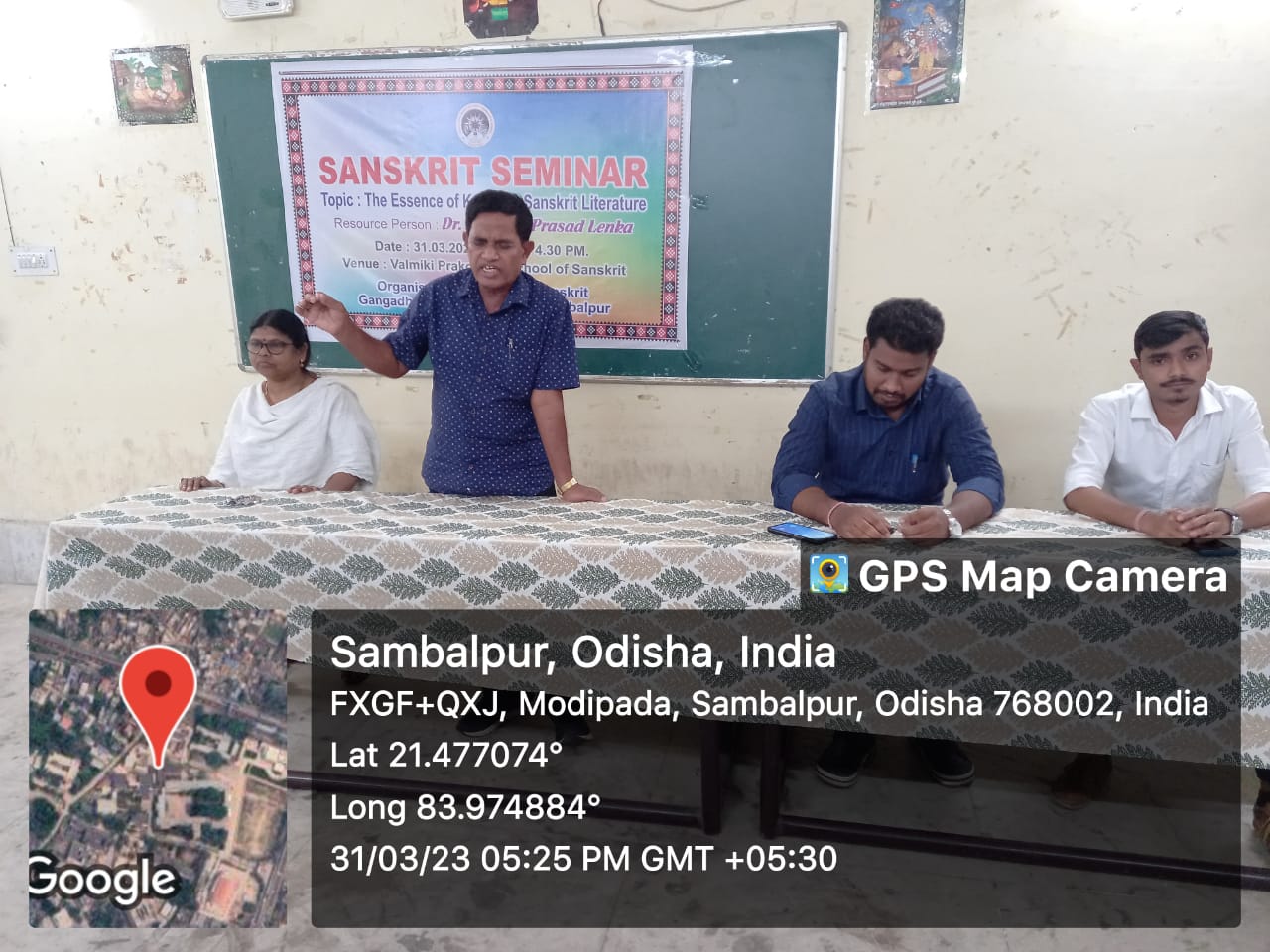 Date: 31/03/2023
Date: 31/03/2023 Upendra Prasad Lenka, Associate Professor of Sanskrit, F.M. Autonomous College, Balesore, in his talk explained the essence of Karma for humanbeings to give suitable excellent valuable examples from Srimadbhagavadgita, Upanishads, Ramayana, Mahabharata, Puranas, Darshan’s etc.
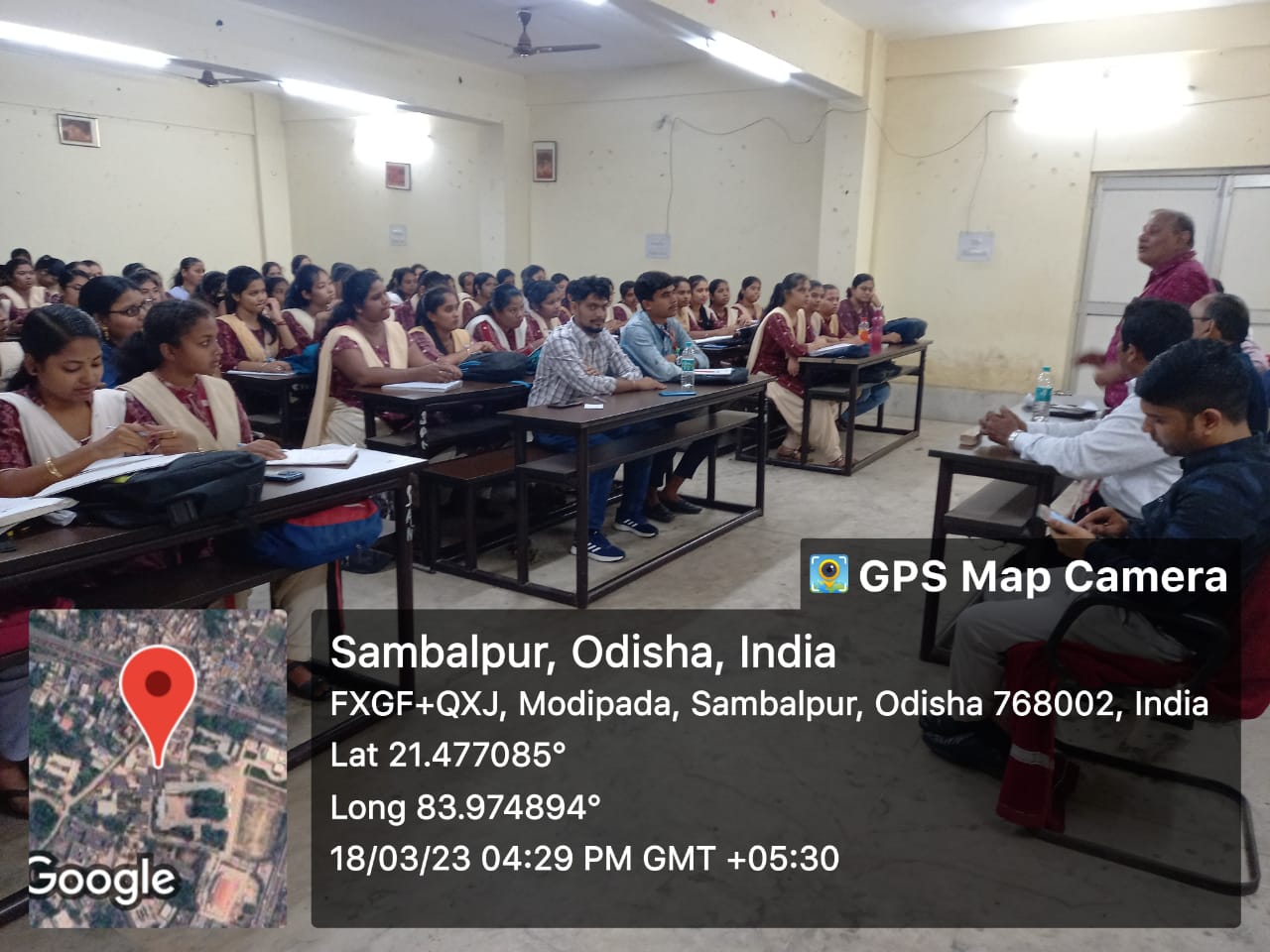 Date: 18/03/2023
Date: 18/03/2023 On the topic “Kavyasya Atma Dhvani ” , Prof. Satyanarayan Acharya, Professor of Sahitya, National Sanskrit University, Tirupati explained that according to Anandavardhana , Dhvani is the soul of Kavya. Among Six Schools Anandavardhana occupied a very important place, whose views have been revealed the subtleties of great poems like Ramayana, Mahabharata and opened the minds of the authors on poetics. The theory of Dhvani in the field of Indfian Poetics is not only a contribution to Sanskrit Language, but also to the Universal rhetoric and aesthetics.
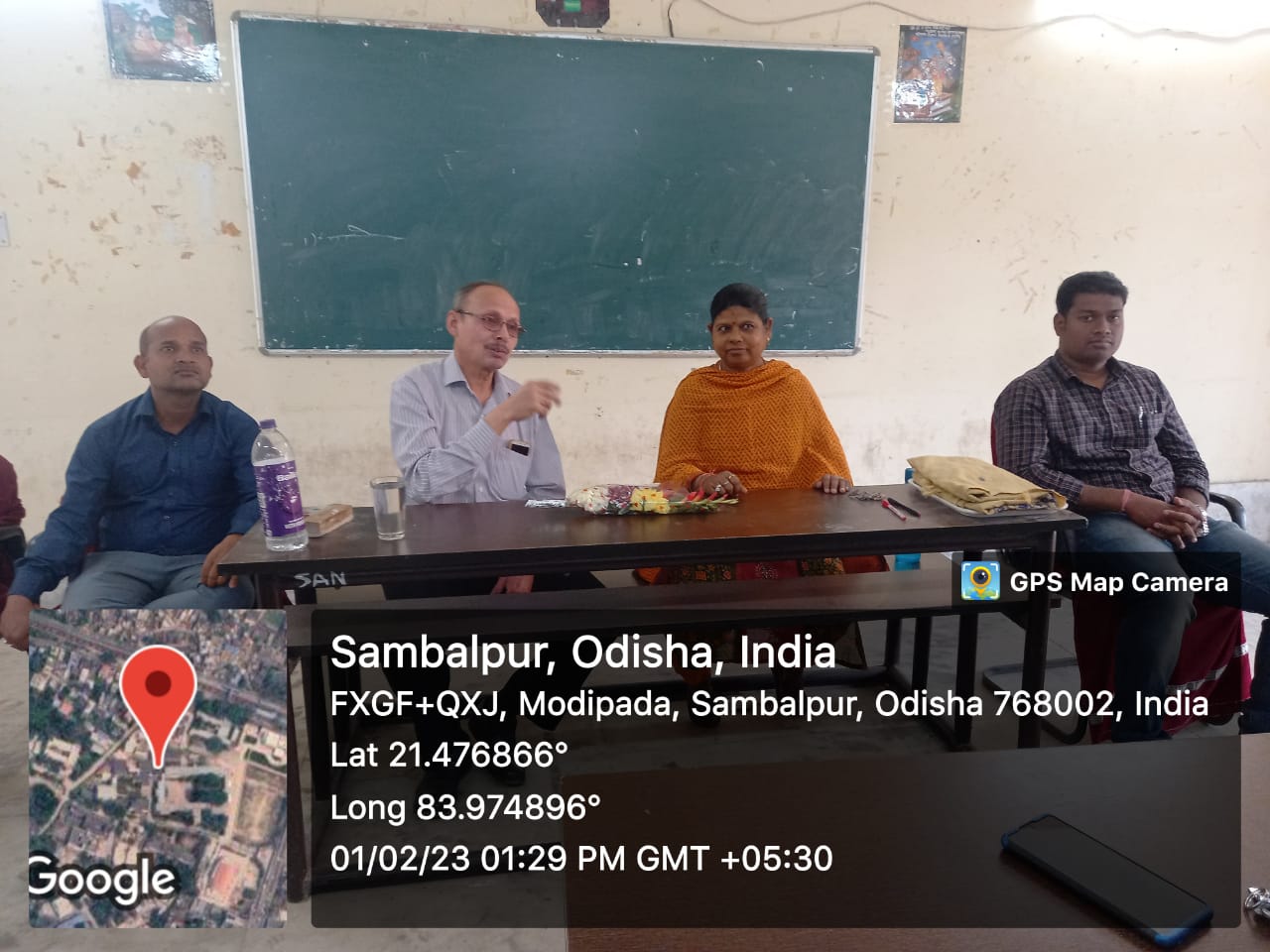 Date: 01/02/2023
Date: 01/02/2023 On the topic “Relevance of Vedanta in the Modern Time” Prof. Himansu Sekhar Acharya, Proessor of Philosophy, Aligarh Muslim University, Aligarh discussed that Vedanta teaches that the soul or individual self (atman) and the Supreme God (Brahman) are in relationship with one another. Vedantists believe that the manifestation of one’s divine destiny is the ultimate goal of life, and can be achieved through meditation and devoted study.
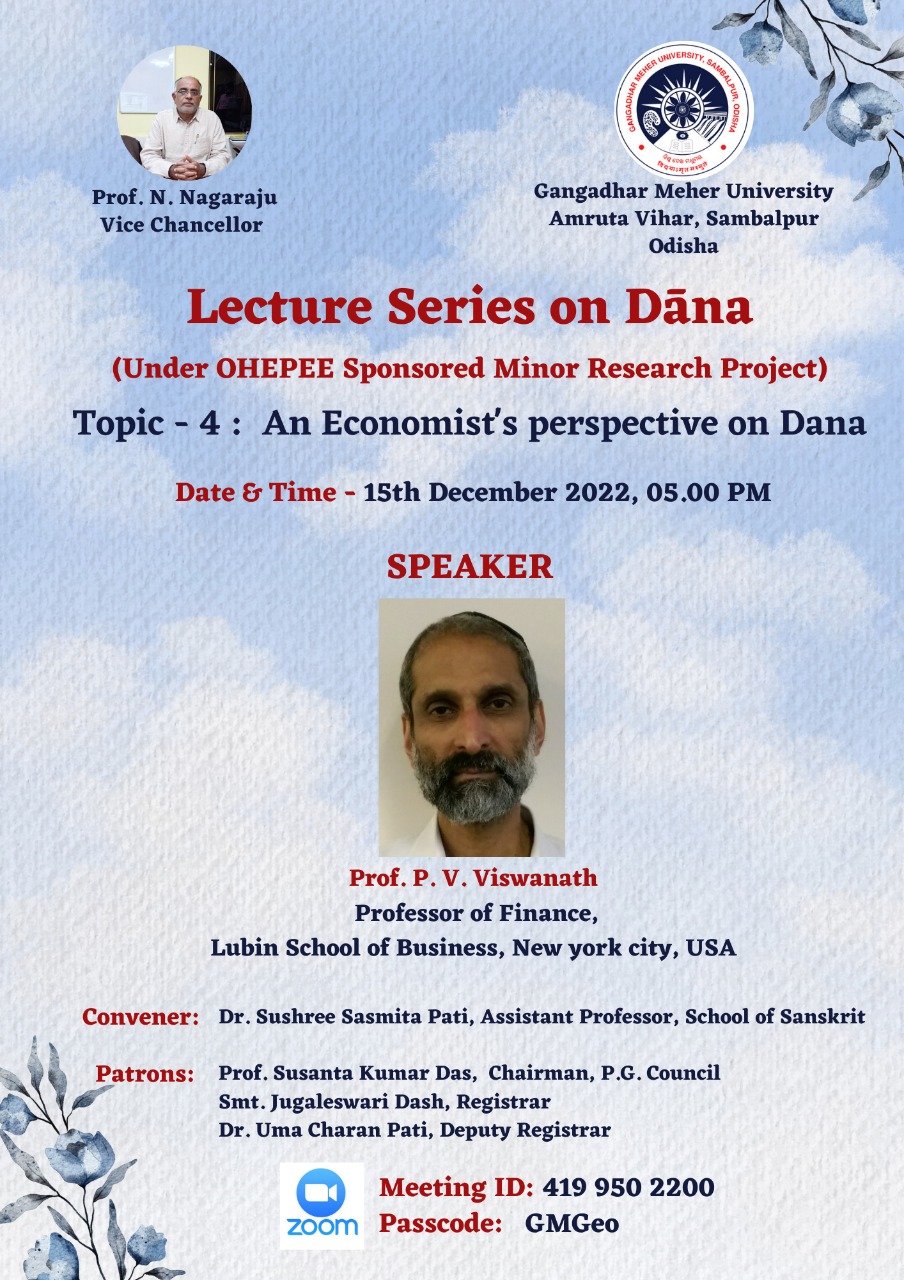 Date: 15/12/2022
Date: 15/12/2022 On the topic “An economist’s perspective on Dana” by Prof. P.V. Viswanath, Professor of Finance, Lubin School of Business, New York, USA made excellent presentation citing various examples of Dana from Smriti and Vedic Texts. He also referred to many readers discussing the concept of Dana corresponding to the financial transactions between donor and receiver.
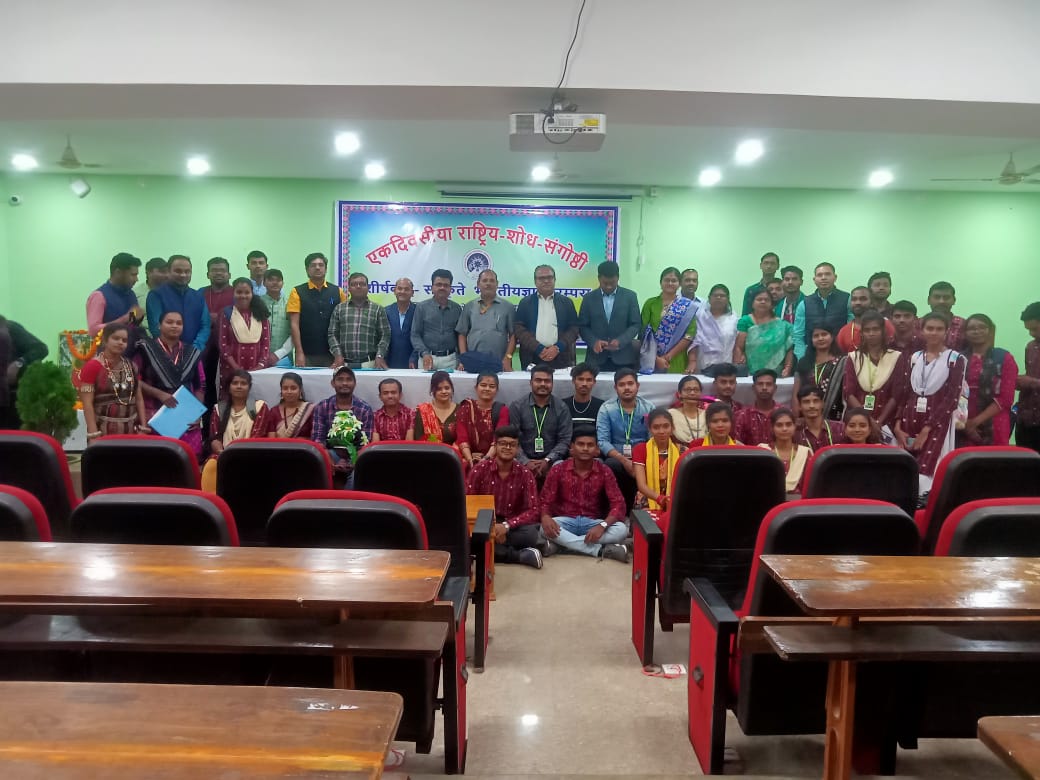 Date: 04/12/2022
Date: 04/12/2022 The seminar was conducted in blended mode. 40 Research Papers were presented Physically and 25 Research Papers were presented through Online Mode. All the Research Papers described the glorious Indian Knowledge Systems in Sanskrit. The treasure trove of the Indian Knowledge System is pre-eminently codified in the medium of Sanskrit. The Vedas, the invaluable knowledge documents handed down over millennia are considered not only the earliest source of Indian wisdom, but also the source of most of the later knowledge system evolved on this land.
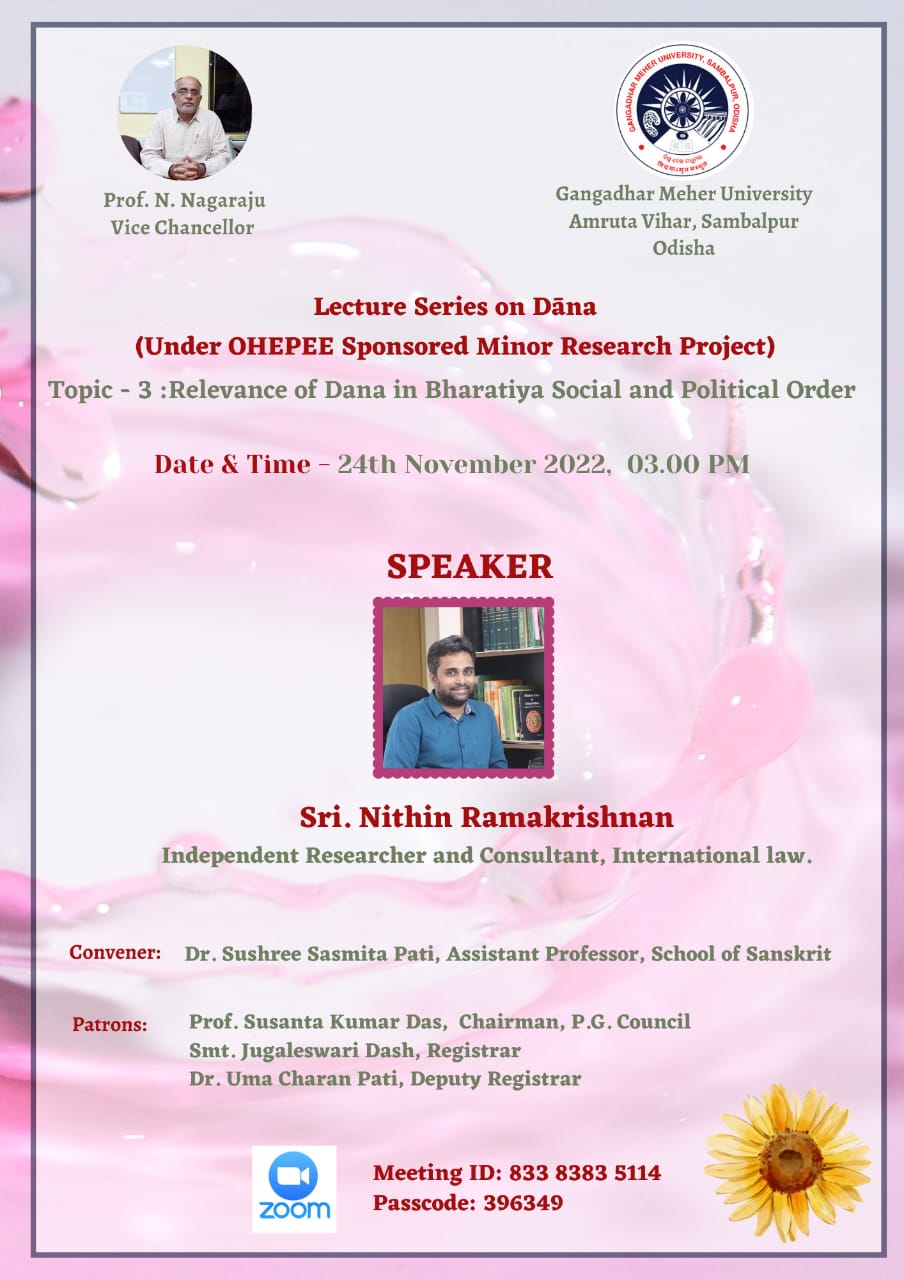 Date: 24/11/2022
Date: 24/11/2022 On the topic “Relevance of dana in Bharatiya Social and Political Order” Sri. Nithin Ramakrishnan enumerated the idea of Dana reflected in the socio-political order found in Indian scriptures such as Smriti Texts. He suggested that International law can be used to popularize the rules and regulations of Dana of Indian Culture in the world.
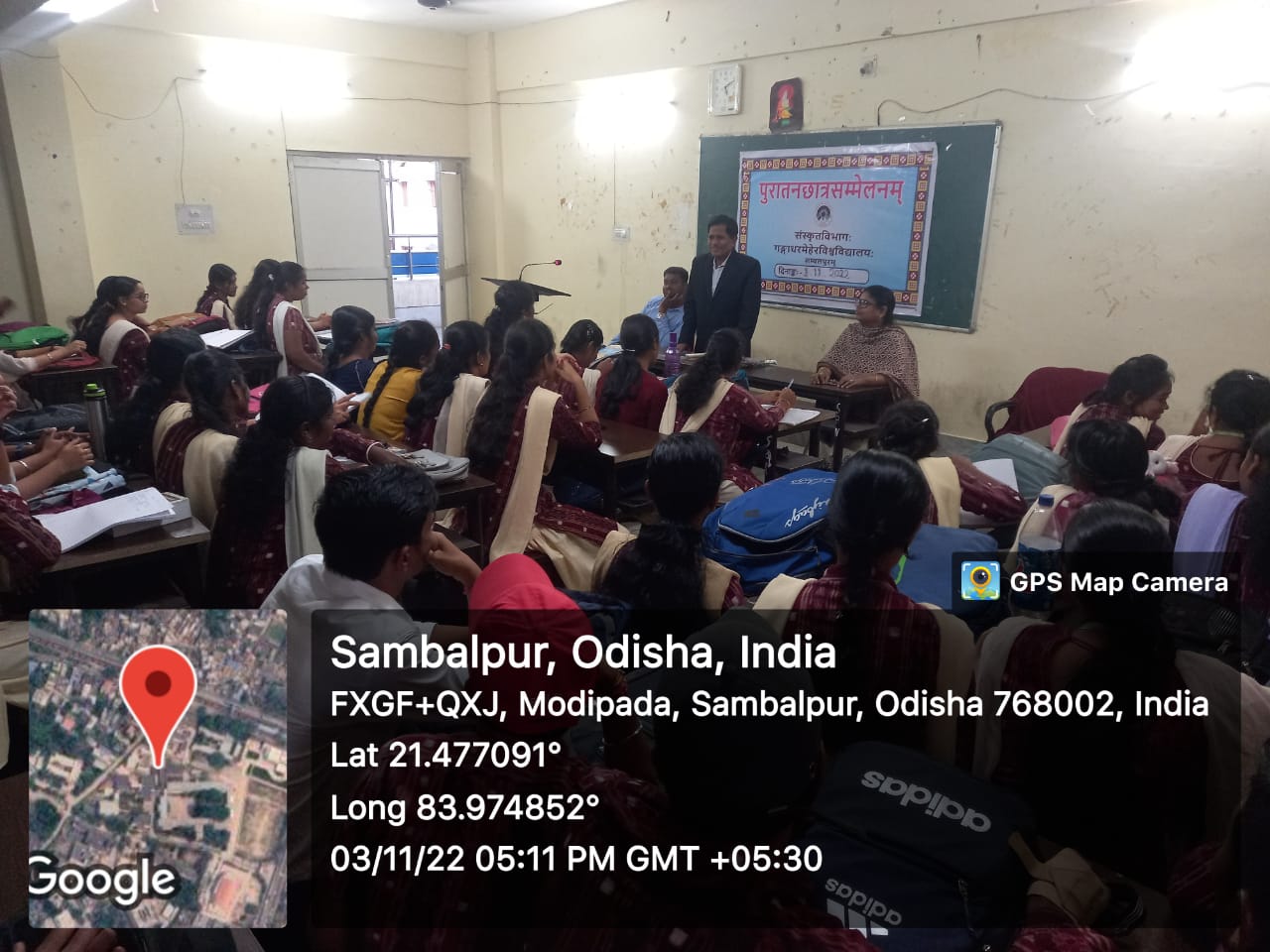 Date: 03/11/2022
Date: 03/11/2022 Upendra Prasad Lenka, Associate Professor of Sanskrit, F.M. Autonomous College, Balesore, in his talk emphasized that without the study of the technical terms of Astadhyayee, one cannot be understand the vidhisutras and cannot be derive the correct words ( sadhusabdas).
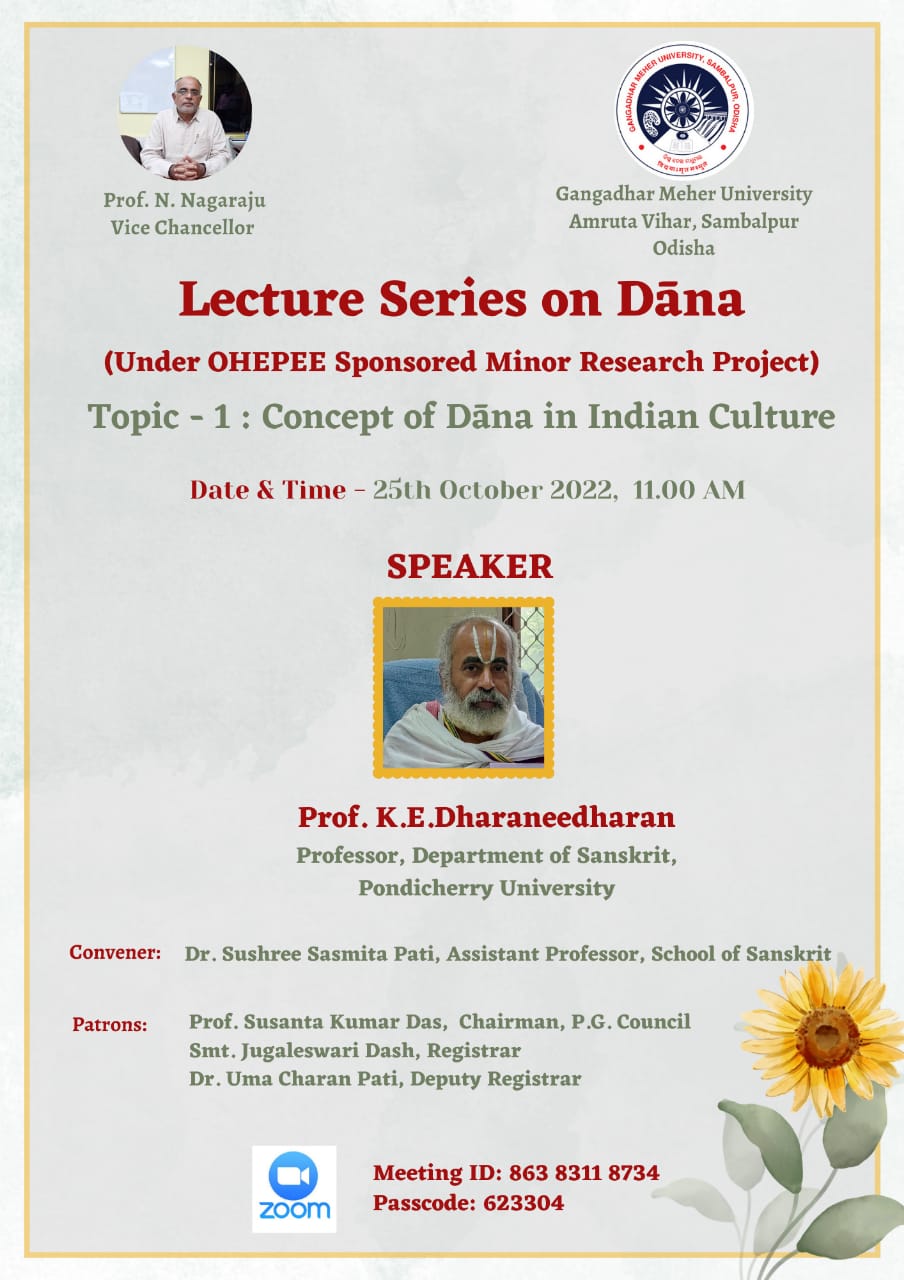 Date: 25/10/2022
Date: 25/10/2022 Prof. K.E.Dharaneedharan, Professor of Pondicherry University , explained the context of Dana found in various Upanishadas and Philosophical texts.
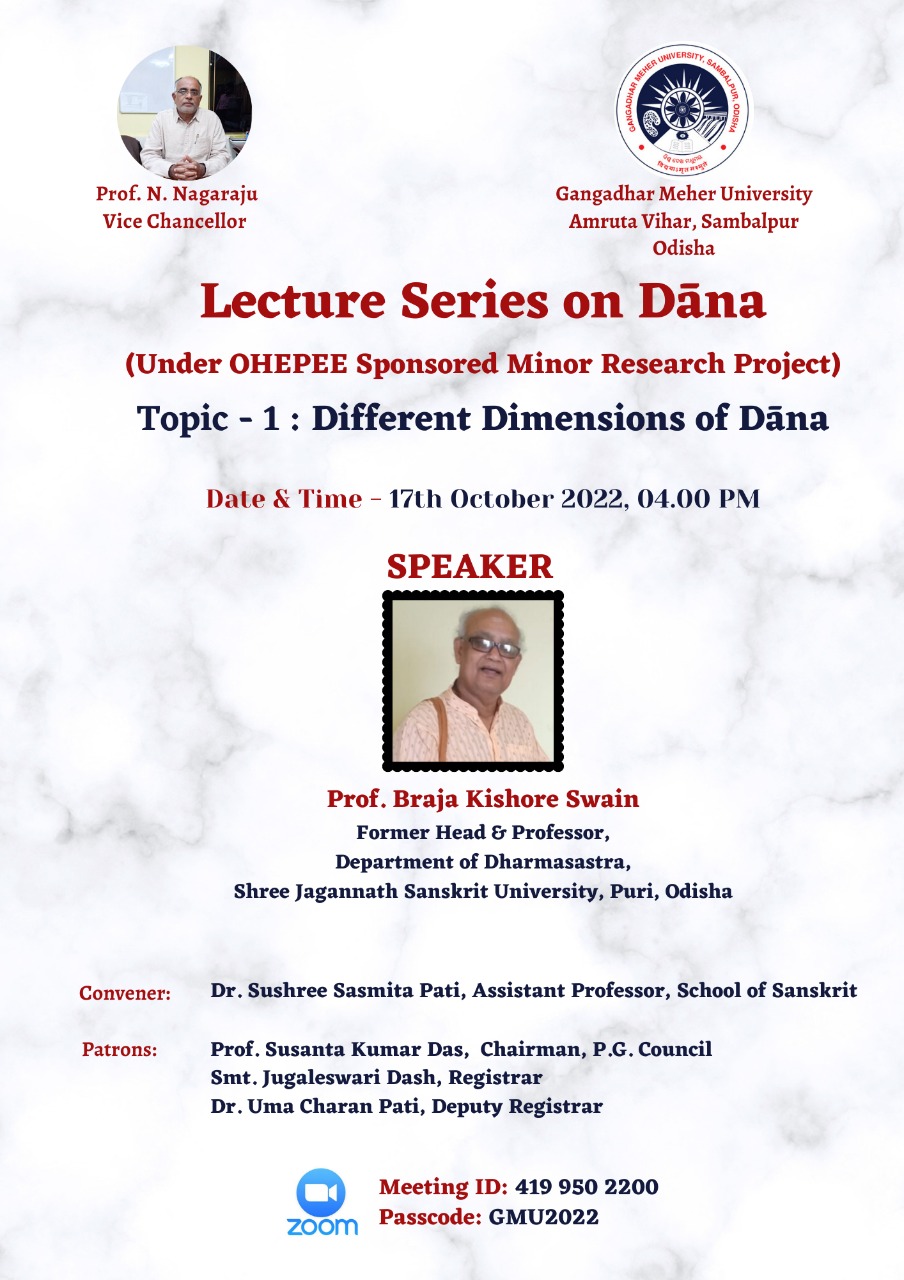 Date: 17/10/2022
Date: 17/10/2022 On the topic “Dimensions of D?na”, Prof. Brajakishore Swain, Former Professor of Dharmashastra, Sri Jagannath Sanskrit Visvavidyalaya, Puri beautifully explained the etymological and shatric meaning of Dana. He also told Dana is meant for higher purposes in this world and the doner must donate things with noble intentions.
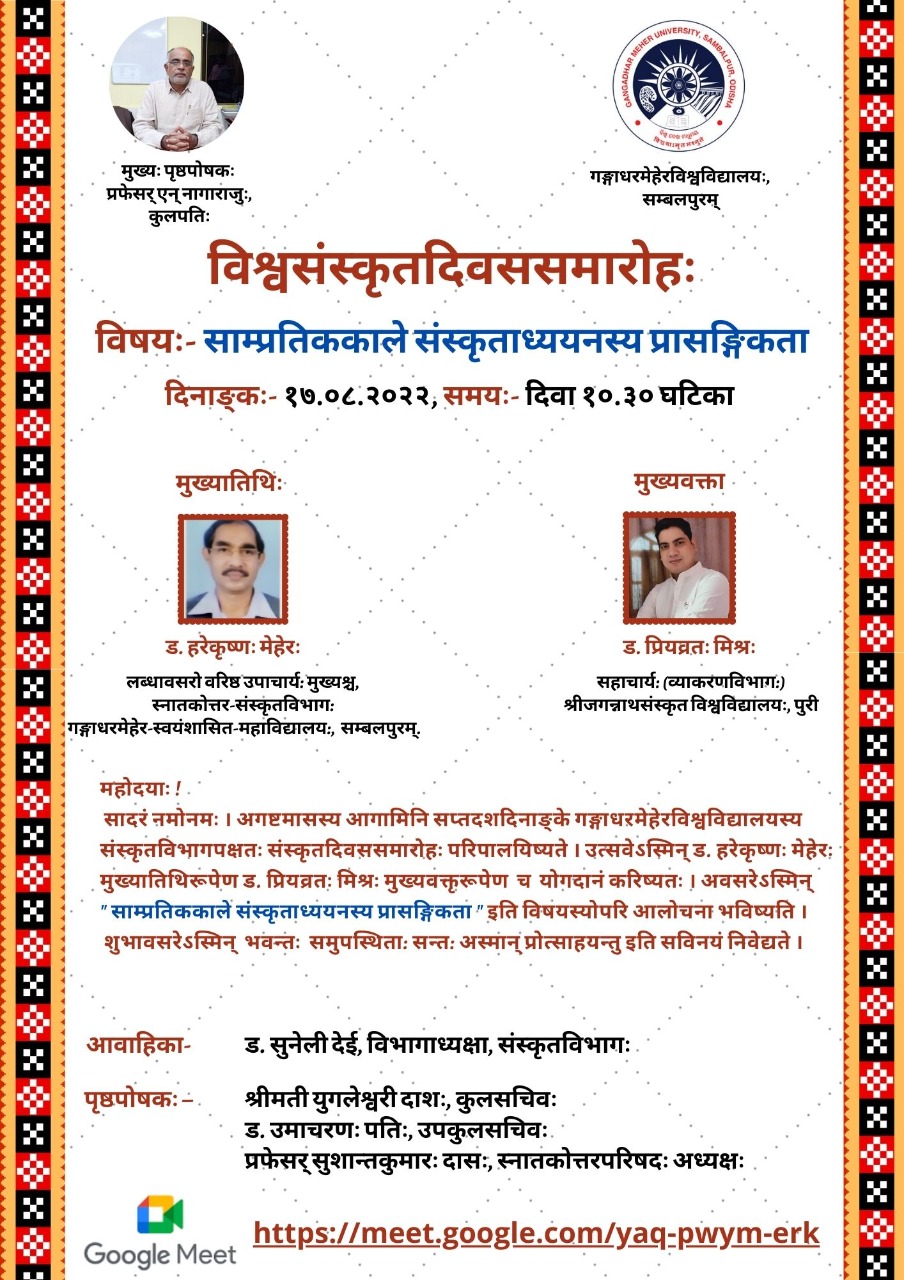 Date: 17/08/2022
Date: 17/08/2022 Dr. Priyabrata Mishra, Associate Professor of Vyakarana, Sri Jagannath Sanskrit Visvavidyalaya, Puri as Chief Speaker of the Seminar pointed out that Sanskrit remains highly relevant in todays time and would continue to remain a source of inspiration for future human generation.
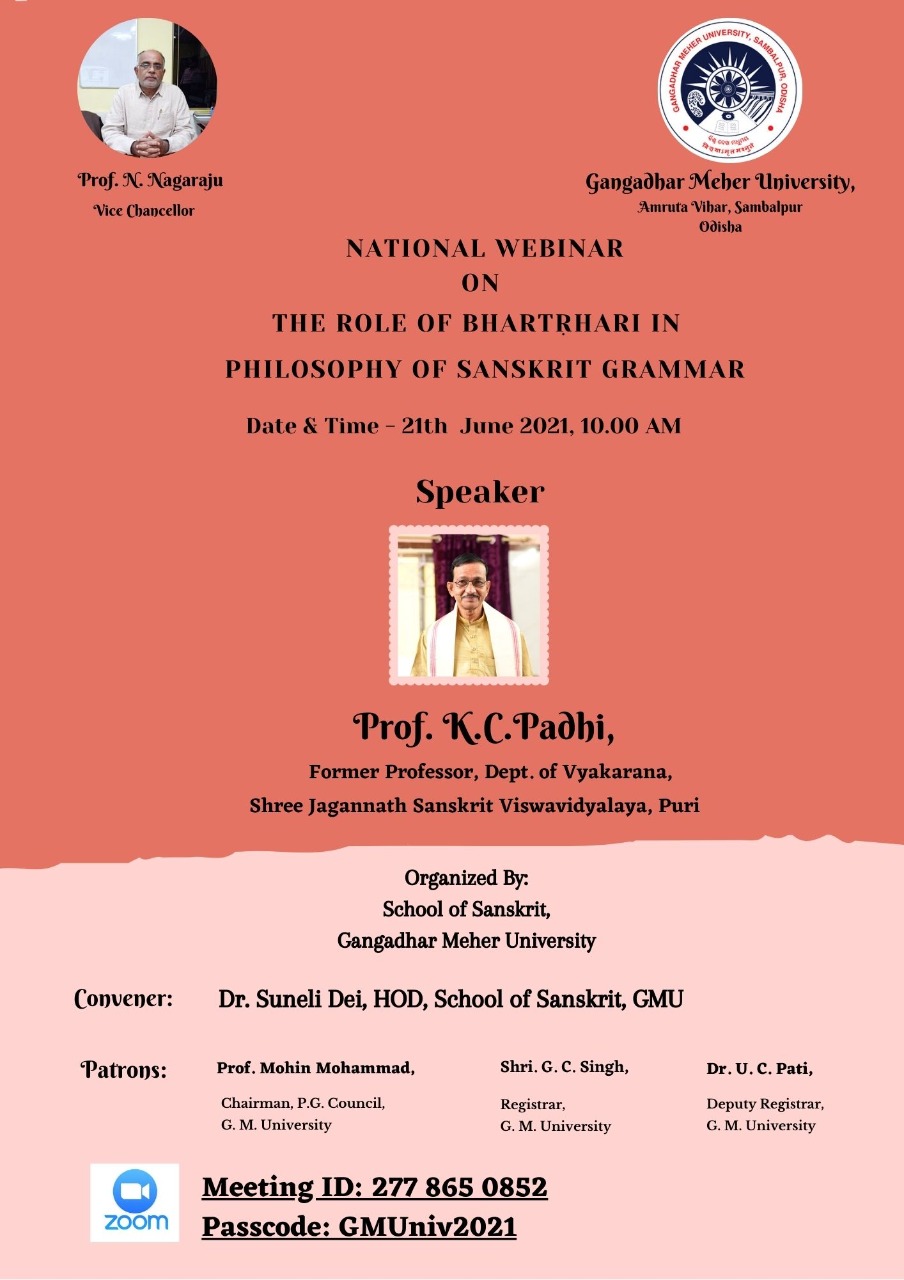 Date: 21/06/2021
Date: 21/06/2021 Prof. Kishore Chandra Padhy, Former Vice-chancellor of Sri Jagannath Sanskrit Visvavidyalaya, Puri in his talk emphasized that the text like Vakyapadiyam is a perfect example of combining two branches of Sanskrit Literature – Philosophy and Grammar. This text reflects various important metaphysical implications found in Sanskrit Language.
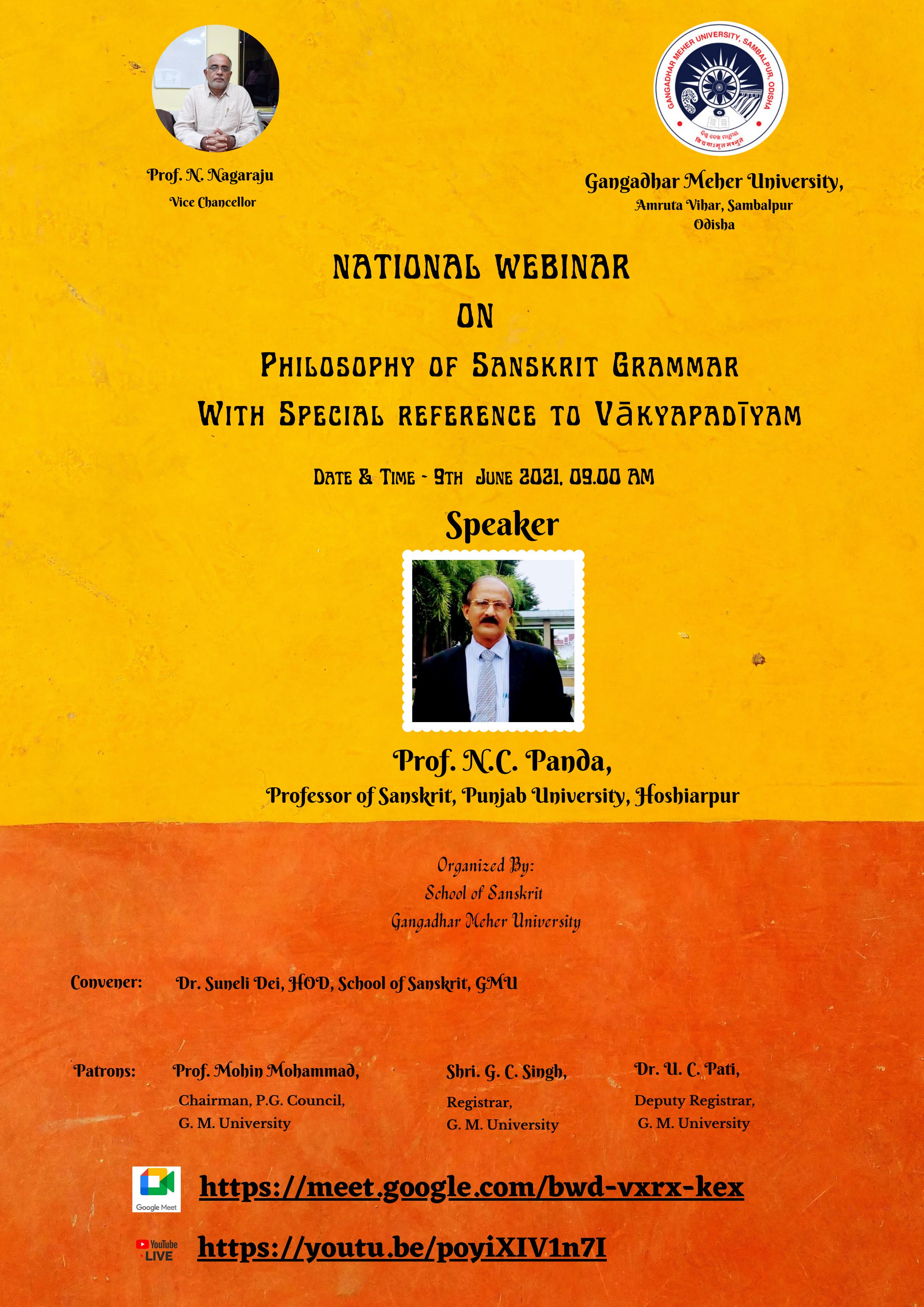 Date: 09/06/2021
Date: 09/06/2021 Prof. Narasingha Charan Panda, Professor of Punjab University presented various Philosophical Sanskrit Grammar Texts and also explained Bhartruhari’s Vakyapadiyam. Bhartruhari developed the text Vakyapadiyam to realise the Scholars about the ability of mind to differentiate between things and action with the help of metaphysical principles.
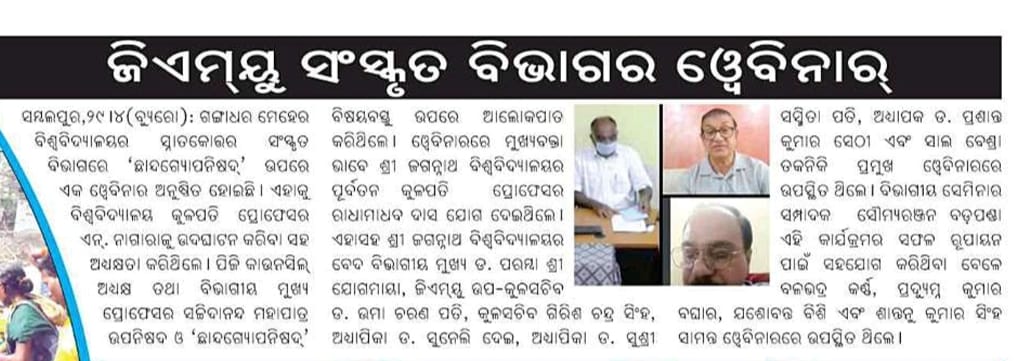 Date: 29/04/2021
Date: 29/04/2021 Prof. Radhamadhab Dash, Former Vice-chancellor of Sri Jagannath Sanskrit Visvavidyalaya, Puri discussed how Upanishads help to identify the bridge between the connections of Human Soul with the Higher Knowledge and Chandogyopanishad teaches the society how to develop the Progressive Meditation. Dr. Parambashree Yogamaya , Assistant Professor of Veda, Sri Jagannath Sanskrit Visvavidyalaya, Puri justified how Chandogyopanishad , one of the best ten Upanishads , had balanced out the spiritual aspects with the culture and tradition.
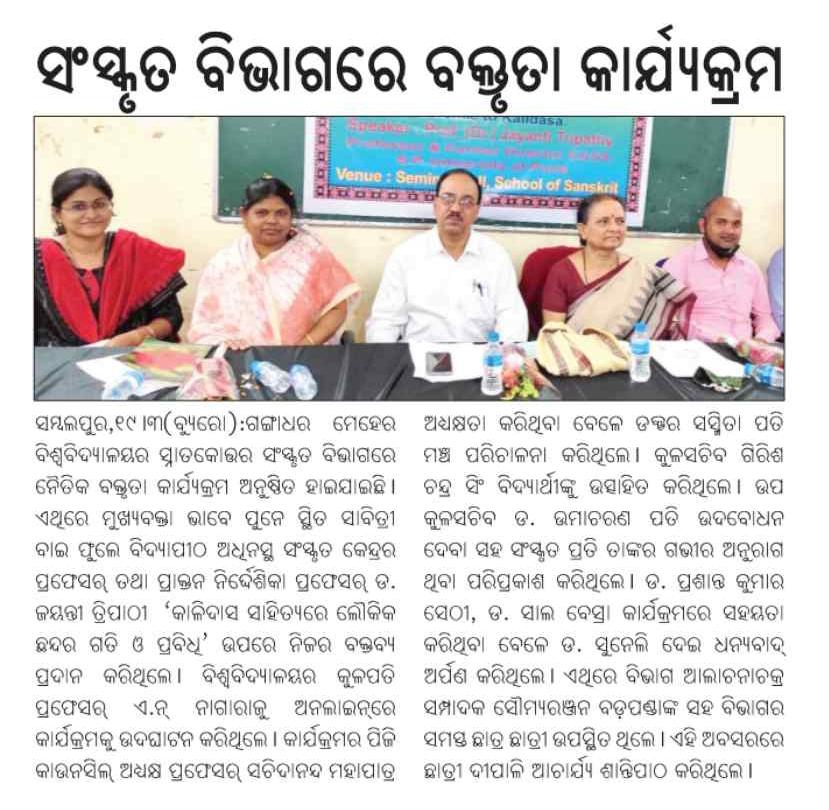 Date: 19/03/2021
Date: 19/03/2021 Prof. Jayanti Tripathy, Former Professor and Director, Savitribai Phule Pune University, in her talk discussed various types of Metres such as Anustup, Indrabajra, Vamshastha, Mandakranta, Vasantatilaka, Sragdhara, Malini etc. found in Kalidas’a literary works as well as other poets. Metres are the true sense of beauty enhancers of the literature knowing. It draws the interest of the readers towards relishing the various emotions depicted by Poets.
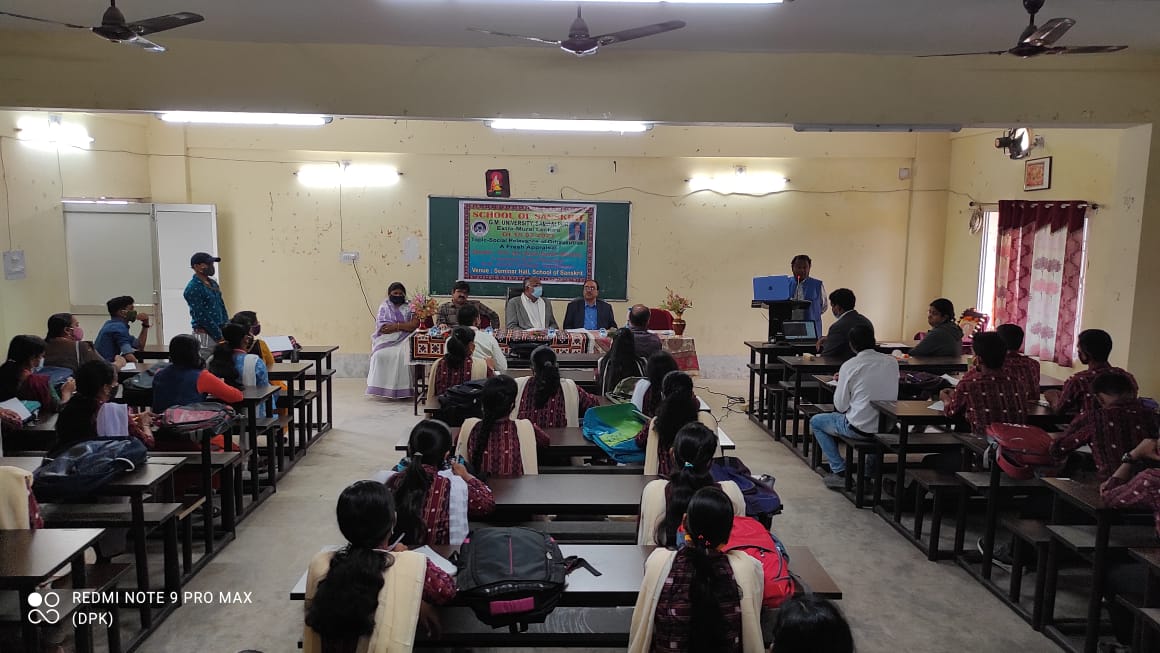 Date: 19/02/2021
Date: 19/02/2021 Prof. Sulok Sundar Mohanty, Former Professor of Gangadhar Meher Autonomous College, Sambalpur in his speech emphasized that the social lives and societies cannot be completed without rituals. Rituals are symbolic representation of culture and tradition of India. Gruhyasutras inspire human to perform the Yajna, Homa etc. to sustain social responsibilities.
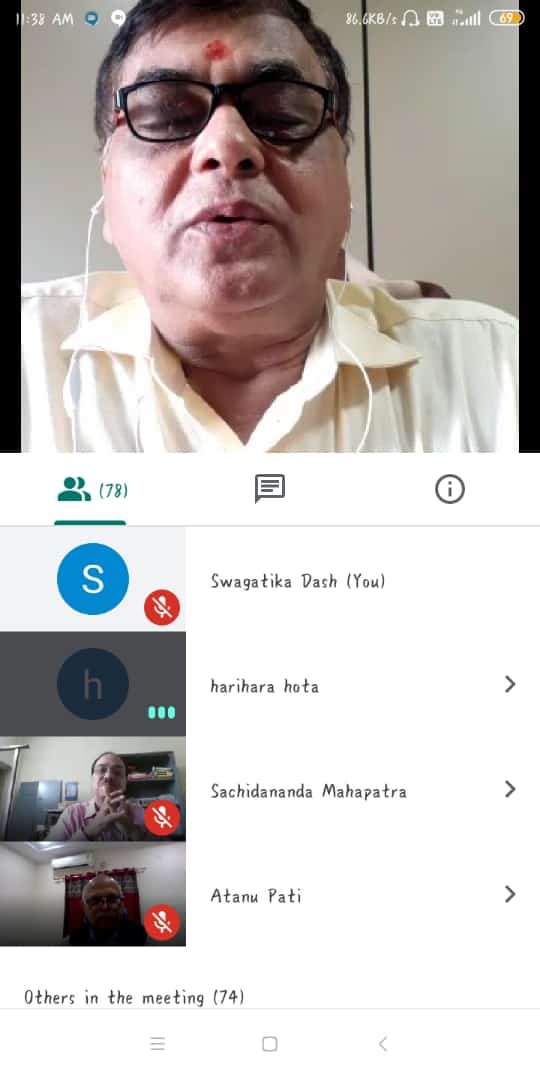 Date: 13/08/2020
Date: 13/08/2020 One Day Webinar was conducted on the occasion of World Sanskrit Day Celebration-2020. Prof. Harihara Hota, Vice-chancellor of Sri Jagannath Sanskrit Visvavidyalaya, Puri as the Chief Guest of the ceremony advised the students to promote Sanskrit which protects our culture, social systems as well as lead us towards the real knowledge of life.
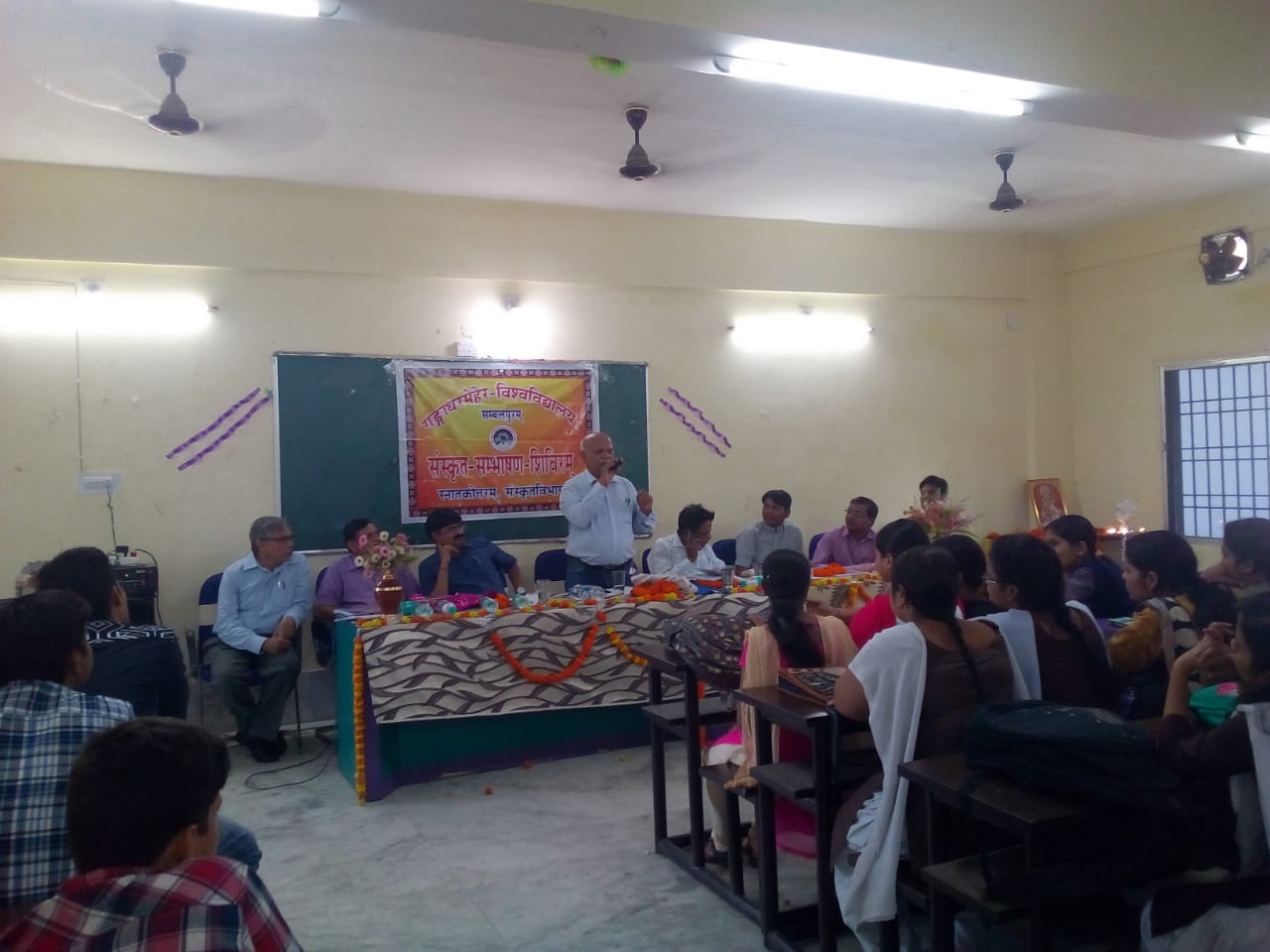 Date: 05/08/2019
Date: 05/08/2019 The main objective of the Spoken Sanskrit Class was to develop Sanskrit speaking capacity of participants. The proper use of Sanskrit in everyday life can endow its user with enhanced creativity and imagination, clearer thinking and deeper concentration.
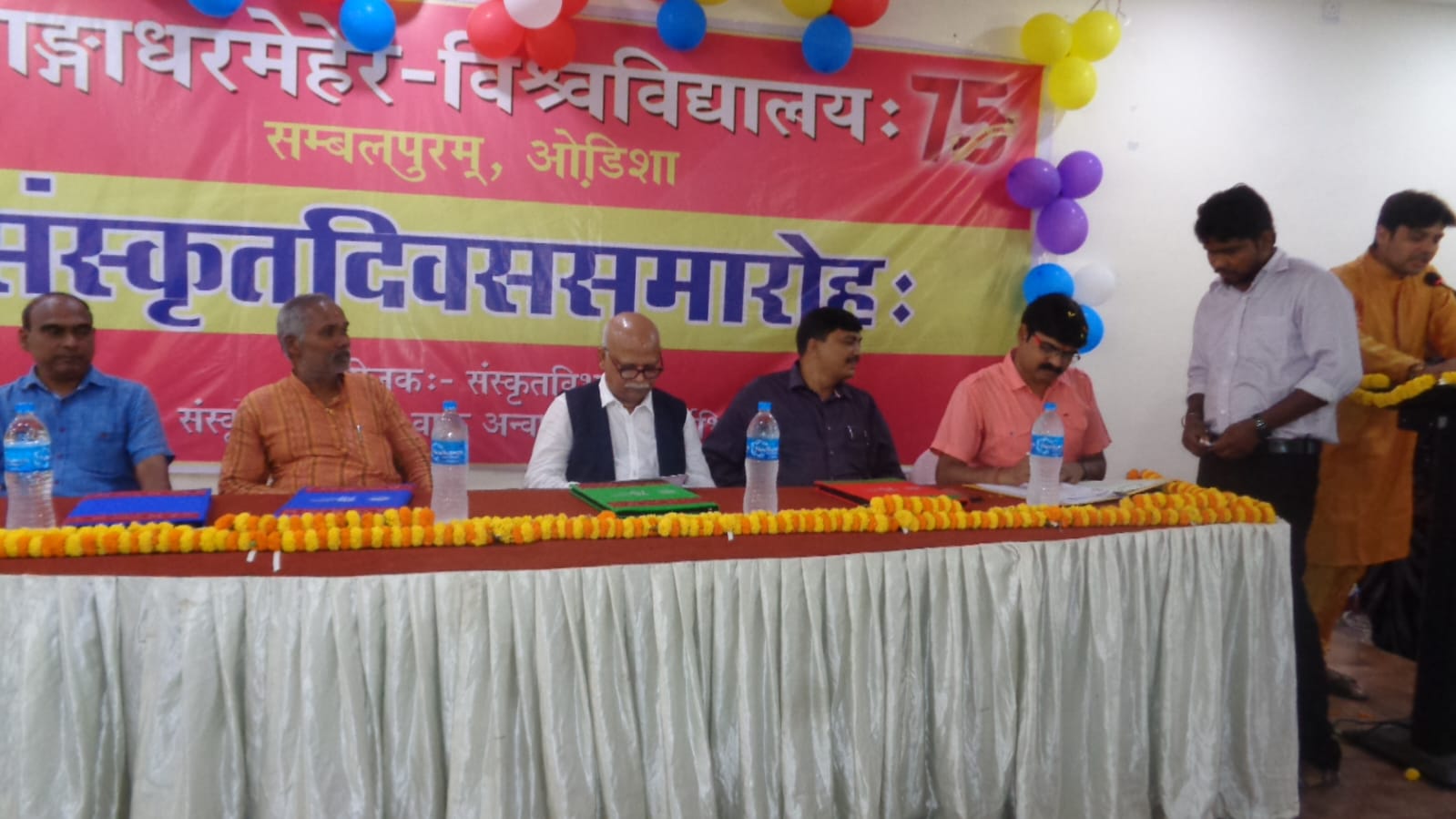 Date: 15/08/2019
Date: 15/08/2019 The main aim of the Celebration of World Sanskrit Day was to spread the importance and values of Sanskrit Language and Literature all over the world.
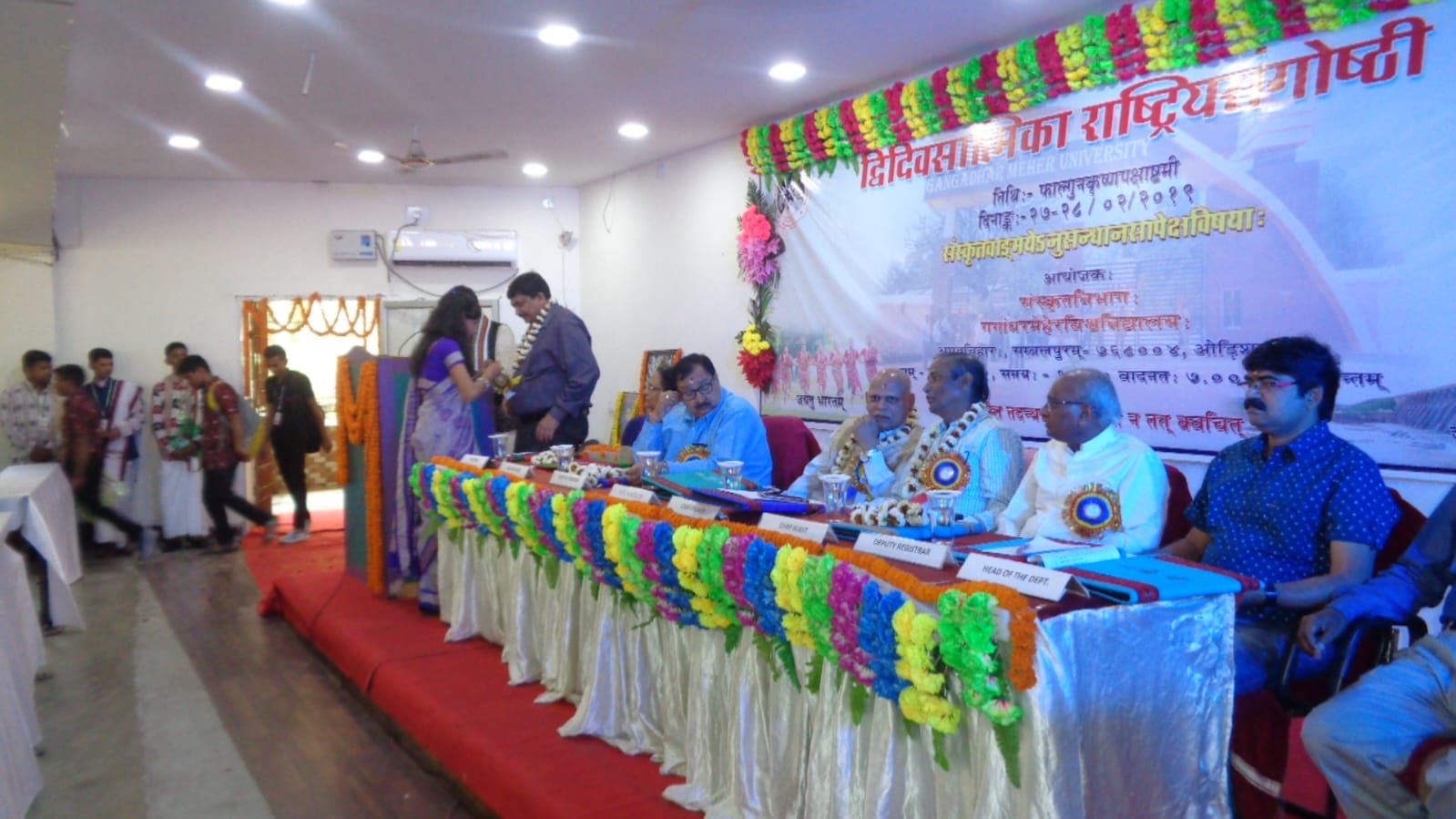 Date: 27/02/2019
Date: 27/02/2019 The main objective of this Seminar was to promote the study of various fields of Sanskrit Literature such as Veda, Grammar, Poetry, Drama, Philosophy, Ayurveda, Jyotisha,Vastu-shastra , Yoga etc. for Research purpose.